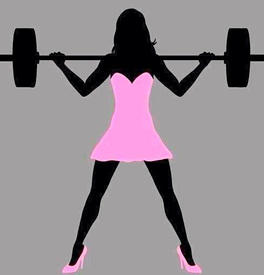Metabolism vs Calories

midpath
Posts: 246 Member
If metabolism is real, then why is calories in and calories out even a thing? How can someone have a better metabolism than someone else of the same height and gender, body farm etc but they need the same amount of calories and same amount of calories burned to lose the same amount of weight?
0
Replies
-
Sorry, body frame*0
-
How a person's body deals with calories in terms of metabolism is certainly important (yes, Virginia, metabolism is real). At the end of the day, though, whether one has a highly revved metabolism or not, weight gain/loss will be due to calories consumed vs. calories burned. This is why, in my mind, guidelines are just that - guidelines. Folks will need to use their own data and adjust accordingly.0
-
Metabolism varies by person. That is the calories out part of the equation.
Muscle mass, bodyfat, daily activity and any number of other factors can affect metabolism which can account for varied numbers between two people of the same height, gender, etc.
There will always be those who are higher or lower than average, but the majority of people will fall within the average range. However, outside of a medical conditions it will not vary to a huge extent.
Any calculator figures the average. There is always a degree of estimation. It is meant as a starting place. People should track carefully and adjust up or down as needed.0 -
This is what I call a "don't major in the minors" question.
Sure, metabolism varies somewhat from person to person. But for any individual person, that person has a pretty narrow calorie range that is "maintenance" and eating more than that will cause weight gain over time, and eating below that range will cause weight loss over time. Know your maintenance -- starting with the general height/weight/age/activity level / sex formulas and refining over time as you get to know from careful calorie accounting how your body responds -- and act accordingly.0 -
Calories in vs calories out applies regardless of your metabolism. Your "calories out"(your metabolic rate plus exercise) might be higher or lower than someone else's, but if you eat more than that you will gain, and if you eat less you will lose. There is no way around that.
Metabolism doesn't change the equation itself, it just affects the "calories out" number.
0 -
Hormones, Activity level and lifestyle all play a part too.
0 -
So people with a higher metabolism just burn more calories during exercise?0
-
Your "calories out" are going to be different from someone else's "calories out". No two people are exactly alike, even if they're the same height, weight and age. People with a higher metabolism will burn more calories throughout the day, both during exercise and simply by being alive and doing normal daily activity.
You have to consume fewer calories than you, personally, burn. Not fewer calories than the next guy burns.
That is all.0 -
-
Not to mention, differences in body fat percentage, differences in the amount you move around each day, and differences in how strenuously you exercise. Just to name a few.0
-
-
You adjust as you see fit to suit your needs.
My grandma and I are the same height. We both have lots to lose and eat the same calories per day. She loses 300g per week versus my 1800g. We obviously differ greatly but the online calculators are a good starting point.0 -
Differences in metabolism are usually insignificant from person to person. Activity level is much more significant.0
-
As everyone said, these numbers are based on averages. Age is a huge factor when it comes to metabolism.
When I was 16, I could eat 3000-5000 cal a day and would not gain weight. Seriously, I was eating huge meals, fast food, and I was always starving. My doctor even had me drink Ensures to try to gain weight - but my body would not do it. I was 5'8 and 106 lbs.
Now at 24, I have to count and keep track of every calorie. I'm still thin, but I definitely gain weight if I don't control my eating and I now have to use MFP to get those gained lbs in the last few years off. My metabolism slowed down around age 20.
So, averages just don't apply to everyone. I was an extreme case when I was young. My little brother is 20 and he still has that same crazy fast metabolism I used to have. His will probably slow down too.
And it changes again and again as you age. So, calories in/out is based on average - what your metabolism is most likely like for your height, age, etc. It gives you something to go off of.0 -
Everyone has put it really well. The equations are pretty good estimates at what a person's metabolism should burn in given condition (age, height, weight, etc). If you know you have a faster metabolism, you might be able to eat a bit more than what the formulas say, if you know you have a slower metabolism, don't exceed what the formulas say, or add exercise in order to burn off the extra calories.
I happen to know that my PCOS will make it more difficult to lose weight without lowering my carb intake to a point I don't want to, so I have to try to incorporate more exercise than most people would to lose the same amount. It isn't "fair" but it is what it is.0
This discussion has been closed.
Categories
- All Categories
- 1.4M Health, Wellness and Goals
- 398.1K Introduce Yourself
- 44.7K Getting Started
- 261K Health and Weight Loss
- 176.4K Food and Nutrition
- 47.7K Recipes
- 233K Fitness and Exercise
- 462 Sleep, Mindfulness and Overall Wellness
- 6.5K Goal: Maintaining Weight
- 8.7K Goal: Gaining Weight and Body Building
- 153.5K Motivation and Support
- 8.4K Challenges
- 1.4K Debate Club
- 96.5K Chit-Chat
- 2.6K Fun and Games
- 4.8K MyFitnessPal Information
- 12 News and Announcements
- 21 MyFitnessPal Academy
- 1.5K Feature Suggestions and Ideas
- 3.2K MyFitnessPal Tech Support Questions










